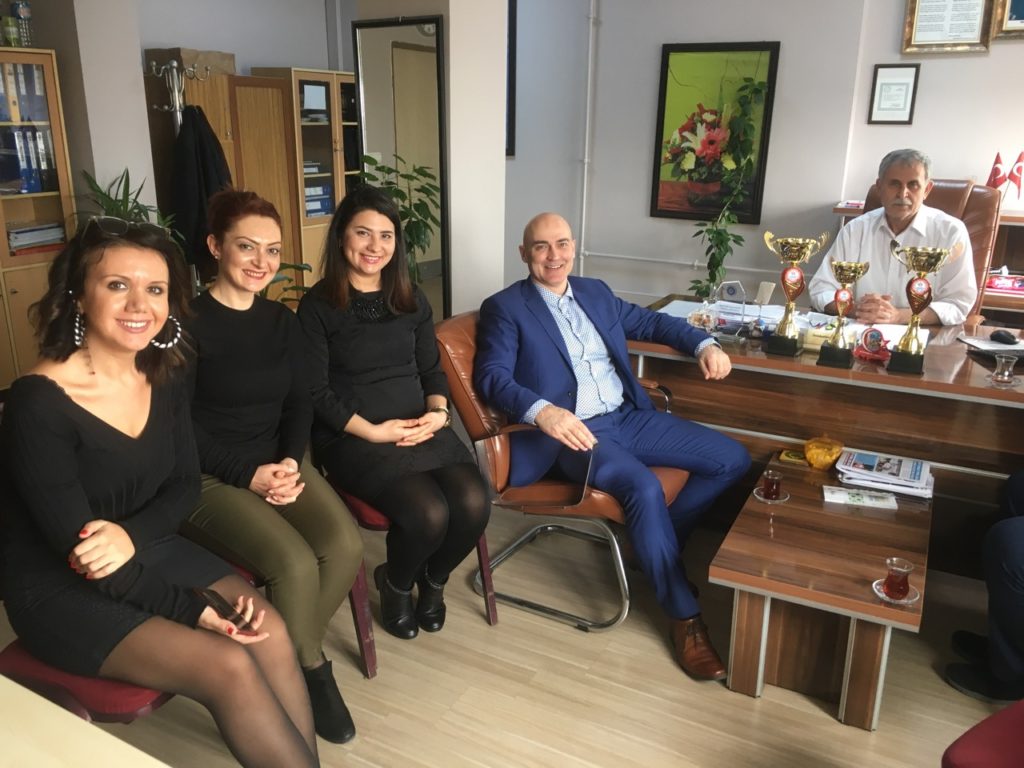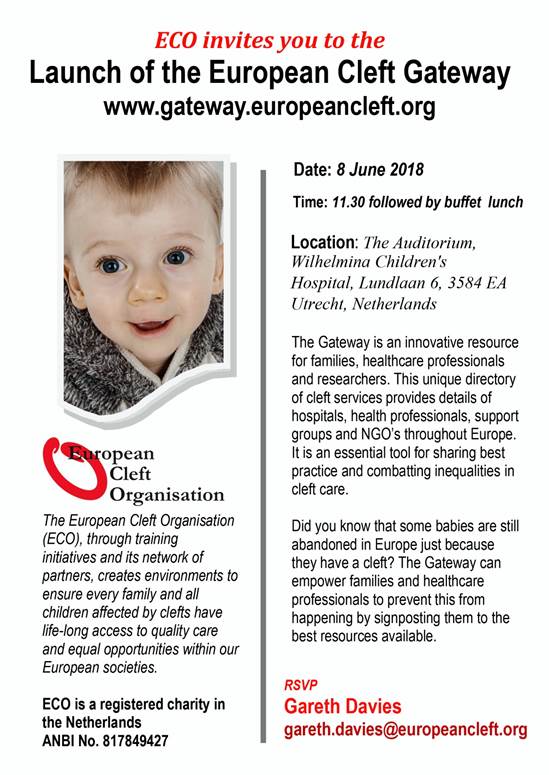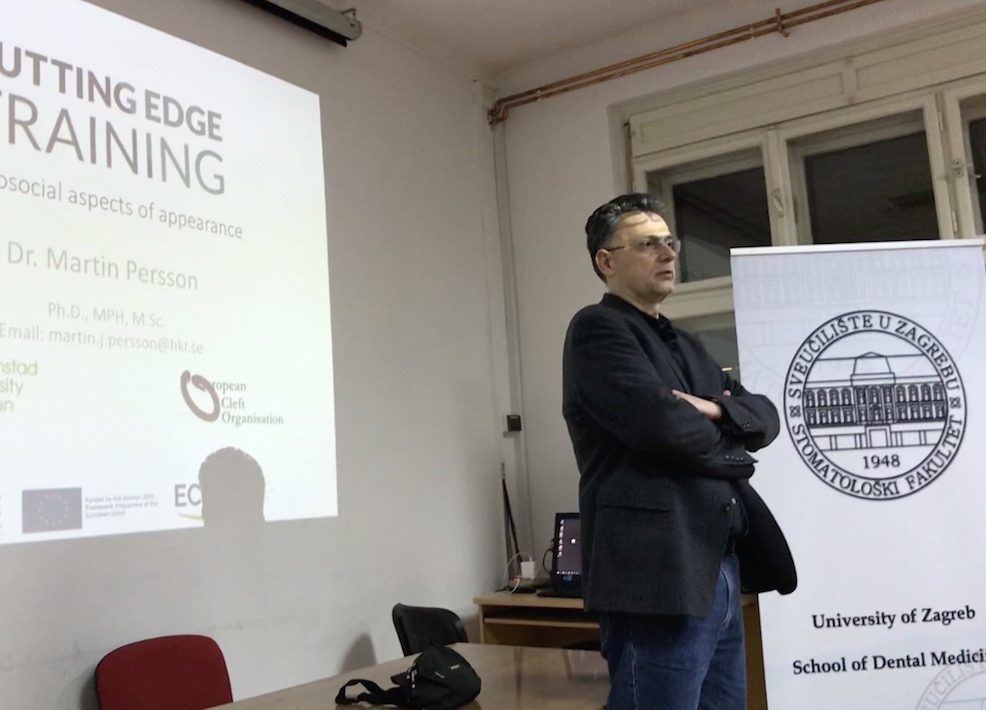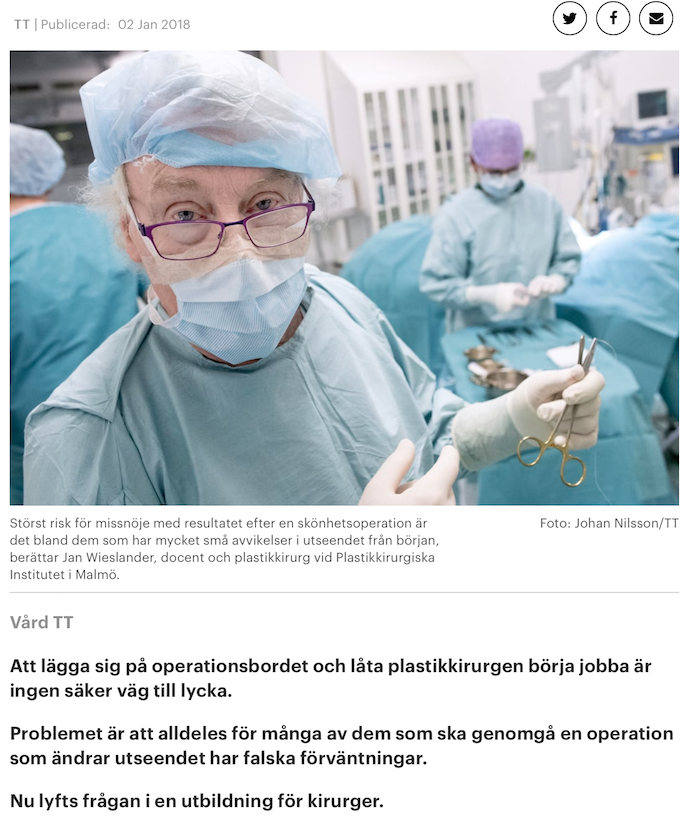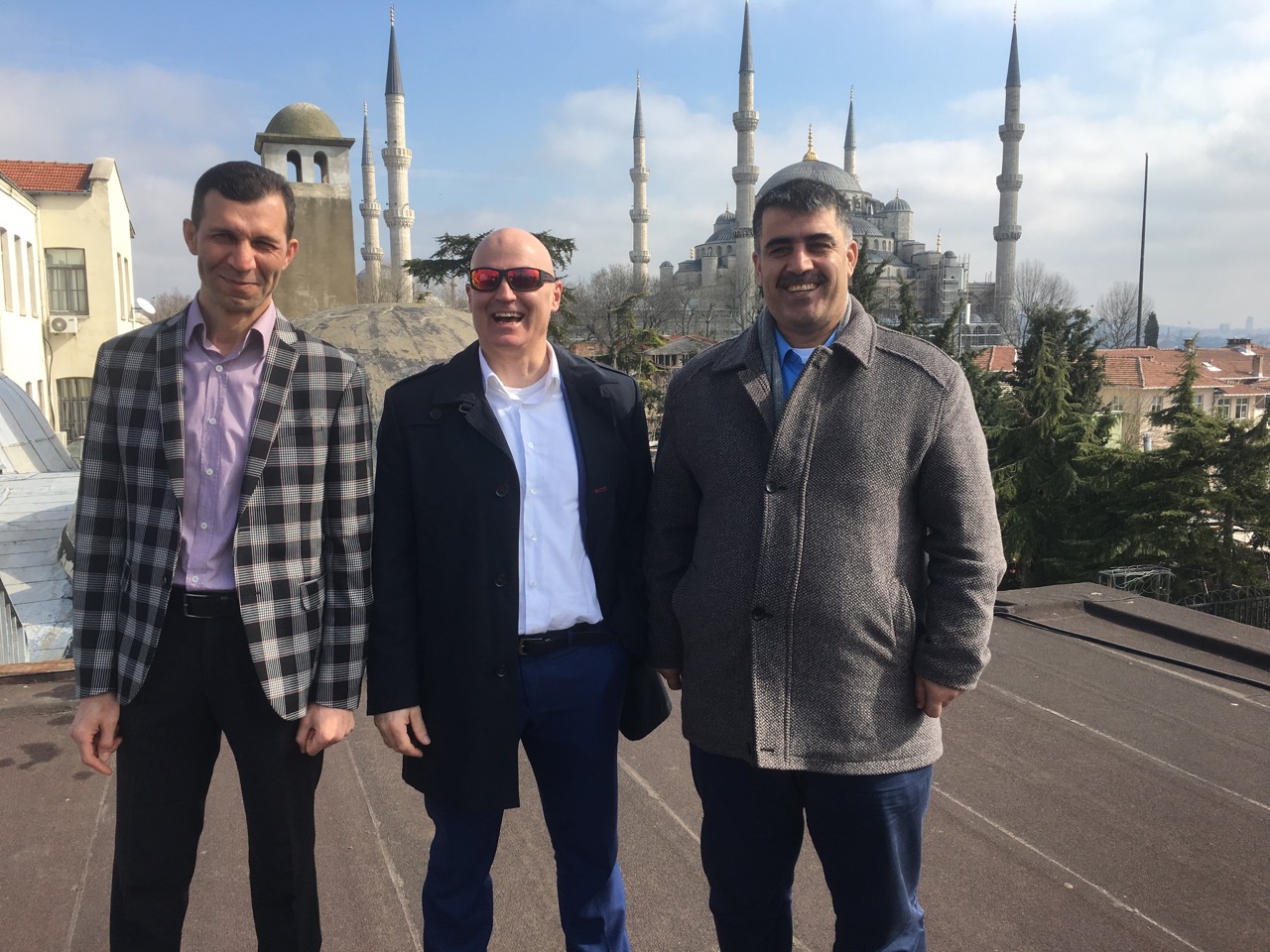The European Cleft Association is launching the new European Cleft Gateway;
The Gateway is a resource for families, health professionals and researchers. It is a comprehensive directory of specialist hospitals, doctors, researchers, support groups, scientific organisations and NGO’s that work in the field of cleft lip and palate throughout Europe. Whether you want to search for the nearest hospital or specialist offering treatment of cleft lip and palate, or find a clinician interested in the same research area as you, this is the place to do it.
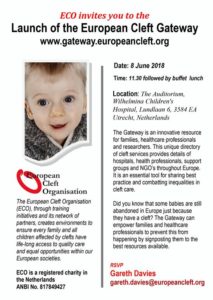
An introductory lecture was given by Dr. Martin Persson about the Cutting Edge Training project, which included the psychosocial aspects for patients undergoing appearance altering procedures, for healthcare professionals in Zagreb.
Martin trains staff at Thai hospital
The background of the Cutting Edge Training project was part of comprehensive training for healthcare professionals at Srinagarind Hospital, Faculty of Medicine, Khon Kaen University and very was well received. Triskelion will now develop more trainings for the Thai hospital.
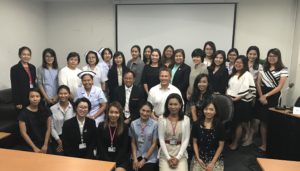
The project has already attracted quite a lot of media attention in Sweden. Over 45 newspapers have reported about the Cutting Edge Training project, including Aftonbladet, Lärkartidningen, and Metro
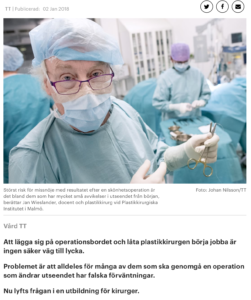
According to new guidelines from the American Academy of Pediatrics (AAP), a two-fold simple approach could be used to prevent teenage obesity and eating disorders.
The report “Preventing Obesity and Eating Disorders in Adolescents,” published in the journal Pediatrics, advises that parents and health experts should veer from focusing on a teen’s overweight body and need for diet. Instead, they should promote a healthy lifestyle balance and that comes with healthy eating.
Many eating disorder programs have noted a marked increase in the number of teens who previously were obese or overweight but who now show early signs of developing eating disorders. In their attempt to lose weight the adolescents may have come to rely on unhealthy and unsustainable methods such as skipping meals or using diet pills or laxatives.
Some who reach normal weights for age and body size also may develop medical and psychologic characteristics similar to teens with classic anorexia nervosa. They may present to the pediatrician with signs of medical instability that can include severe bradycardia (slow heart rate) or orthostasis (postural hypotension).
Three recommendations focus on behaviors to avoid: parents and doctors should discourage dieting, skipping of meals, and the use of diet pills. Instead, they should encourage and support the implementation of healthy eating and physically active behaviors that can be maintained on an ongoing basis.
Two recommendations emphasize behaviors to promote: parents should encourage more frequent family meals, and parents should support a positive body image among teenagers that can motivate them toward developing healthy eating and physical activity habits.
see more : https://www.healthychildren.org/english/healthy-living/pages/default.aspx
Correct it group meets in Foggia, Italy
The 16th of March 2018, the Correct it group met at the University of Foggia, Italy to evaluate curriculum development and discuss dissemination and further steps of product development. The curriculum will be peer-reviewed and translated into all partner languages, and it will be available from the project website : Correct-it.eu
At Dove, they believe no young person should be held back from reaching their full potential. However, low body confidence and anxieties over appearance keep young people from being their best selves, affecting their health, friendships, and even performance at school.
For more than 10 years, they’ve been helping parents, mentors, teachers, and youth leaders deliver self-esteem education that’s reached more than 20 million young people so far.
Take a look at their resource page and learning materials:
The Centre for Appearance Research (CAR) at the University of the West of England (UWE Bristol) has partnered with educational games specialists Focus Games Ltd to launch an exciting new resource to help children understand and respect the differences in people’s appearance.
Everybody’s Different: The Appearance Game is an educational board game that aims to help young people to discuss and explore issues around appearance and body image.
Many young people are happy with the way they look, but many are not. Factors including the media, and friends and family, can influence how they feel about their own appearance, and how they react to other people, including those who have a visible difference (disfigurement) of any sort. The game aims to help children understand that differences in appearance are normal, and people come in many different shapes, colours, sizes and appearances.
Everybody’s Different: The Appearance Game is a team board game for up to eight players, aged nine and above. Two teams compete against each other, asking and answering questions, and completing activities which promote discussion around body image, appearance and differences. Questions and activities explore a variety of key topics including body confidence, visible difference, body talk, appearance related bullying, appearance ideals in the media and putting appearance in perspective. The game is a fun but informative alternative to traditional educational activities, and could be used by schools, groups or clubs, or for health promotion.
For further information visit www.appearancegame.co.uk or @AppearanceGame on Twitter.
Potential cooperation with Georgia ahead
A team from Triskelion headed by Lena went to Tiblisi, Georgia to look at new cooperation opportunities in the VET and YOUTH sector. We had meetings with representatives for private education sector and YOUTH NGOs working with primarily non formal learning. We looked at VET education in public health sector, competence building of youth workers and possible projects in VET sector. We will meet again in medio 2018 to plan in detail.
Triskelion staff visited primary-, secondary- and vocational schools in Esenler suburb in Istanbul to see how they have worked towards integrating Syrian refugees into schools and everyday life. We were also granted a welcome at the mayor’s office where he was interested in starting cooperation in the education sector for his team of schools. We emphasised our historical connections back to viking times around 900 when a norseman/viking called Halvdan wrote his name on the balcony of the second floor in Hagia Sofia church probably serving as a guard to the royalty.
